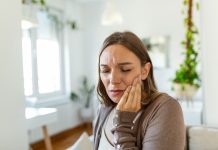
Migraines, a type of headache that can cause severe pain and other symptoms, are often not diagnosed or treated properly. Even when treated, it’s hard to catch them early enough or find ways to prevent them.
A new study, published in the online issue of Neurology, has explored how mobile apps can be used to track factors like sleep, energy, emotions, and stress, to predict and potentially prevent migraine attacks.
The study discovered that if a person feels like they had poor sleep or lower energy than usual the day before, they’re more likely to have a migraine the next morning.
Interestingly, these factors didn’t increase the risk of having a migraine later in the day. For afternoon or evening migraines, the main predictors were increased stress levels or unusually high energy the day before.
Kathleen R. Merikangas, Ph.D., from the National Institute of Mental Health, notes that these patterns show how our daily biological clock, or circadian rhythms, play a role in migraines. This new understanding could improve how we treat and prevent migraines.
The study included 477 people, ranging from 7 to 84 years old, with 291 being female. They used a mobile app for two weeks to report their mood, energy, stress, and headaches four times a day.
They also rated their sleep quality daily and wore devices to monitor their sleep and physical activity. Nearly half of them had a history of migraines, and 59% experienced at least one migraine in the morning during the study.
The findings were quite revealing. People who felt their sleep quality was poor had a 22% higher chance of having a migraine the next morning.
A drop in the usual quality of sleep increased the chance of a next-morning migraine by 18%. Also, having lower energy than usual was linked to a 16% higher chance of a headache the next morning.
For afternoon or evening headaches, increased stress and higher-than-usual energy levels the previous day were linked to a 17% increased risk.
Interestingly, the study found no connection between anxiety, depression, and the likelihood of a migraine the next day.
What’s surprising is that migraines were more related to how participants felt about their sleep rather than their actual sleep patterns.
This suggests that how people perceive their physical and emotional states is crucial in understanding migraines.
Tarannum M. Lateef, MD, from the Children’s National Health System, emphasizes the importance of monitoring sleep changes to predict headache attacks.
Mobile apps, which track sleep and other health factors in real-time, can offer valuable insights for managing migraines.
A drawback of the study is its short duration, as participants were tracked only for a brief period.
Nonetheless, this research opens up exciting possibilities in using technology to predict and perhaps even prevent migraines, offering hope to those who suffer from this debilitating condition.
If you care about pain, please read studies about how to manage your back pain, and Krill oil could improve muscle health in older people.
For more information about pain, please see recent studies about how to live pain-free with arthritis, and results showing common native American plant may help reduce diarrhea and pain.
The research findings can be found in Neurology.
Copyright © 2024 Knowridge Science Report. All rights reserved.



